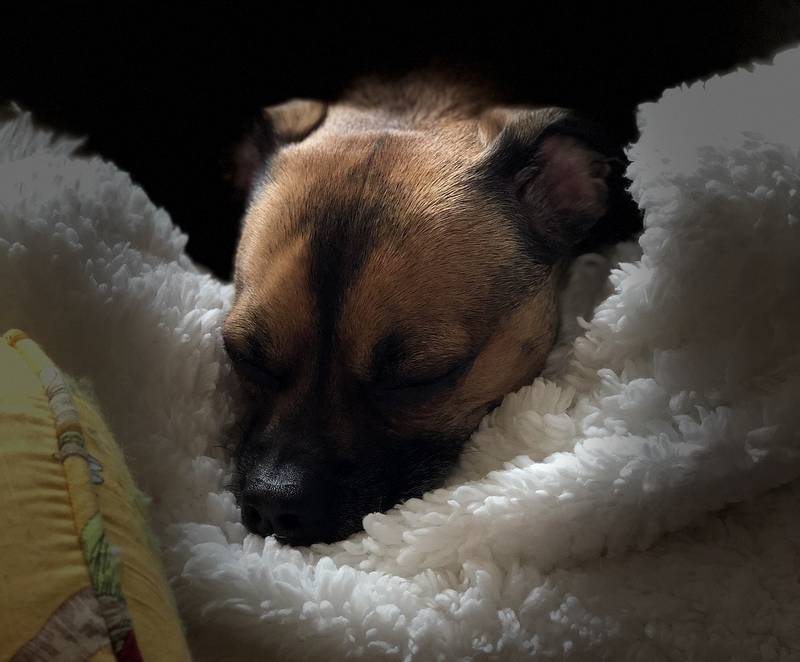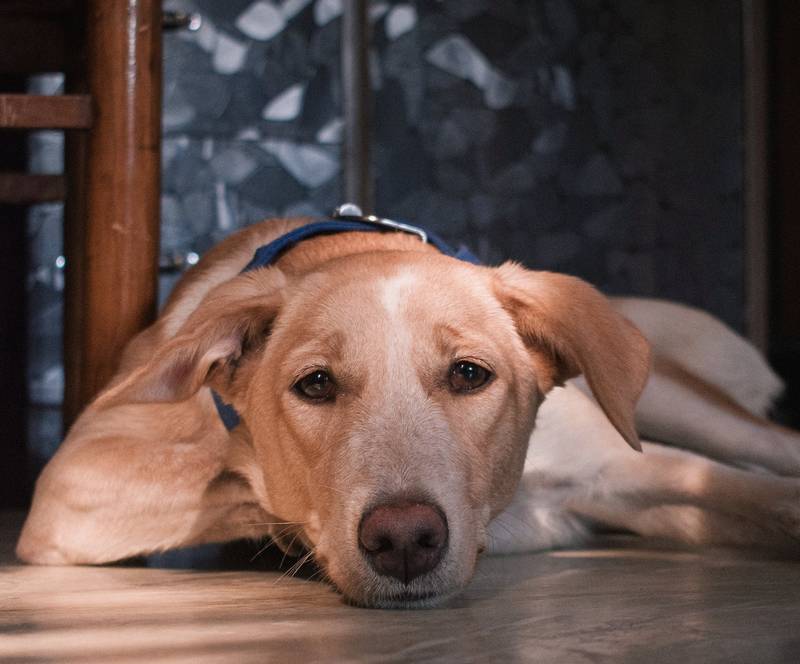Why Is My Dog Whining at Night? How to Help if Dog Whines at Night!
“Why is my dog whining at night?” It’s so worrying not knowing what’s going on! If you’ve been dealing with your dog whining at night, then I’m sure you’re also eager to know how to help settle them down, determine what’s going on, and give them the proper type of care. This article will give you all that and more.
In this guide, we’ll uncover the reasons behind nighttime whining, whether they stem from medical issues or behavioral concerns. We’ll provide strategies to help your dog settle down at night, including specific information on older dogs who might have different needs. Keep reading to learn more about managing and soothing when your dog whines at night!
Why Is My Dog Whining at Night?

Your dog is whining at night for a variety of reasons, including discomfort, anxiety, the need for attention, or even medical issues. Understanding the cause of this behavior is essential to addressing it effectively and ensuring both you and your pet can have a peaceful night’s sleep.
Why Does My Dog Whine at Night?
Your dog whines at night because of needs that are not being met or feelings of unease. This could be as simple as needing to go outside for a bathroom break, feeling hungry or thirsty, or more complex issues like separation anxiety or discomfort from a lack of exercise during the day.
It’s important to assess your dog’s routine and physical environment to identify any changes or needs that might be causing distress.
Dog Whining at Night: Medical or Behavioral?
Determining whether your dog’s nighttime whining is due to medical or behavioral reasons is important. Medical issues could include pain from arthritis, gastrointestinal discomfort, or urinary tract infections, which require a veterinarian’s attention.
On the other hand, behavioral reasons might stem from anxiety, boredom, or lack of proper exercise and mental stimulation.
Dog Whines at Night: How to Help
To help your dog stop whining at night, consider the following steps:
- Ensure they have a comfortable sleeping environment, possibly with a favorite toy or blanket for comfort.
- Establish a consistent routine that includes plenty of exercises during the day and a set bedtime.
- Address any potential medical issues by consulting with a veterinarian to rule out or treat health problems.
- Consider crate training if anxiety is an issue, as it can provide a sense of security.
Addressing your dog’s nighttime whining involves understanding their needs and ensuring they feel secure, comfortable, and healthy. These steps will help, but it’s important to remember that any underlying behavioral issues (anxiety, boredom, etc.) that were causing all of this to begin with will still be present.
And until you address those, any positive changes you see will only be temporary.
“Well, how do I make these changes last?”
By getting your dog to truly choose to follow your direction, that’s how. I tried many times to write out how you can do that before deciding it made more sense to just link you to the free video series that explains it better than I’d ever be able to.
The series is by a man named Dan who is one of the world’s leading dog obedience trainers. In it, he teaches you how to put an end to things like your dog whining at night and all other misbehavior using his fast and easy-to-follow methods.
In the first video, Dan will reveal to you why the two most common methods of dog training only doom you to failure. You can watch the video now by clicking here. Follow the proven system he’ll show you in his series and you’ll never have to spend another second worrying about why your dog whines at night ever again!
Old Dog Whining at Night

If you have an old dog whining at night, it’s important to understand that this behavior can be attributed to various factors, including health issues, anxiety, or changes in their sleeping environment.
Senior dogs may experience discomfort due to joint pain, vision or hearing loss, or even cognitive dysfunction, which can disrupt their sleep patterns and cause them to whine. By identifying the root cause of the whining, you can take steps to alleviate their discomfort and ensure a peaceful night’s sleep for both of you.
Why Is My Older Dog Whining at Night?
Your older dog is whining at night due to possible discomfort, anxiety, or the need for attention. As dogs age, they can develop health issues such as arthritis or cognitive dysfunction, which can lead to discomfort or confusion at night.
Additionally, senior dogs might need to go outside more frequently to relieve themselves and whine to communicate their needs. Learn the steps you can take to help by going back to the first section now.
Old Dog Crying in Sleep at Night
If your old dog is crying in their sleep at night, it might be experiencing dreams or nightmares. However, if the crying is frequent or seems to be caused by pain, it could be a sign of a medical issue that needs attention.
Watching your dog’s behavior and contacting your vet if you notice changes or distress can help determine if there’s an underlying health problem.
How to Stop Old Dog Whining at Night
To help your old dog stop whining at night, consider the following steps:
- Ensure they have a comfortable sleeping area that supports their joints and keeps them warm.
- Establish a consistent nighttime routine to help them feel secure and reduce anxiety.
- Provide a late evening bathroom break to minimize the need to go outside during the night.
- Talk with your veterinarian to address any potential health issues that may be causing discomfort.
Understanding and addressing the reasons behind your old dog’s whining at night can significantly improve their quality of life and help you both enjoy more restful nights.
You’re probably ready to begin now that you have all of your questions about your dog’s nighttime whining answered, so I’ll let you get started on things. Good luck, and thanks for taking a look at our article “Why Is My Dog Whining at Night? How to Help if Dog Whines at Night!”.





